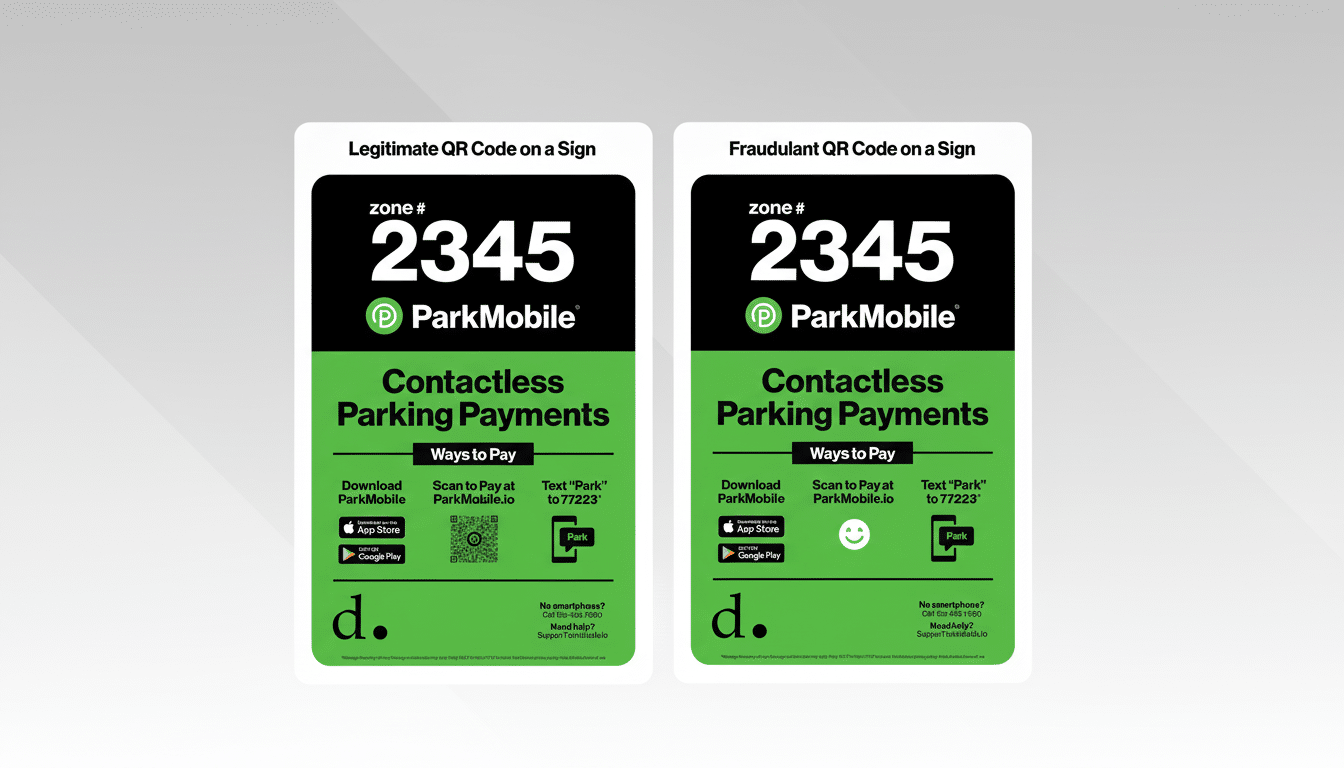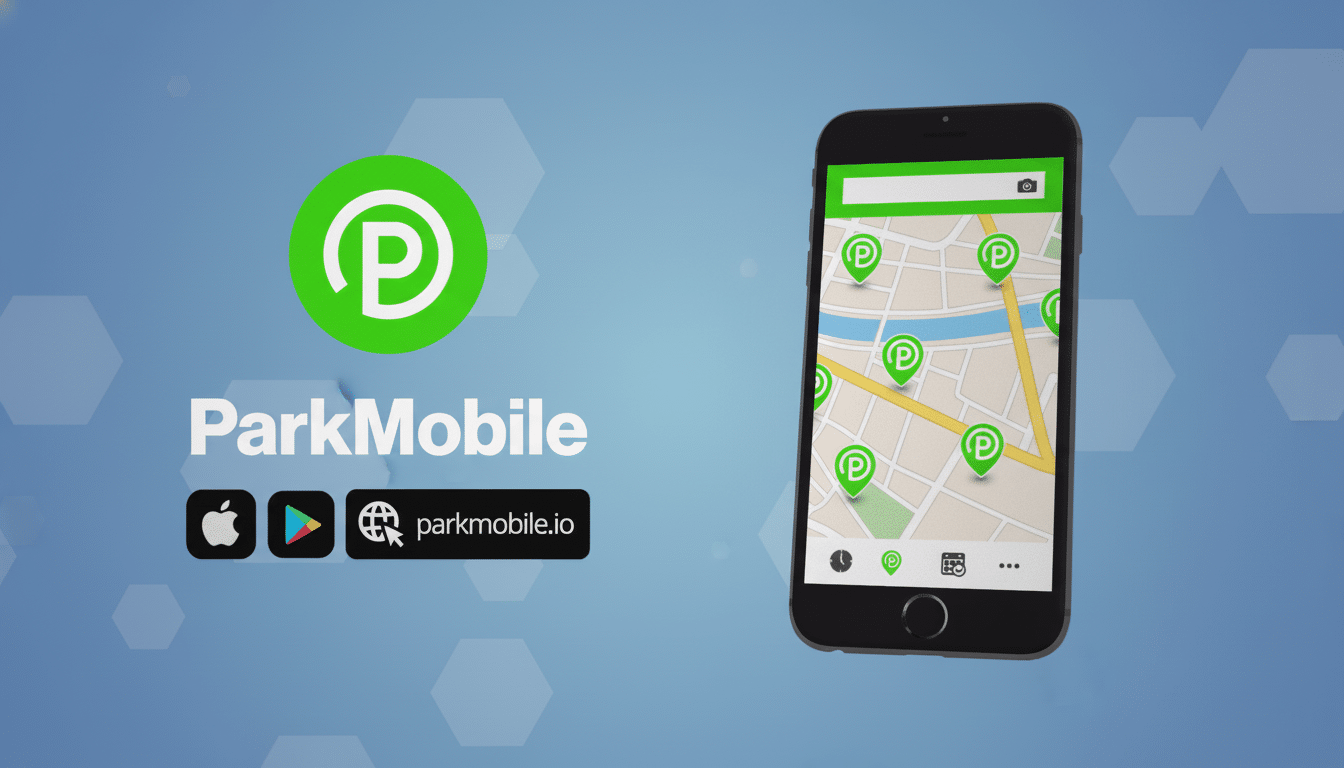If you are among the people who used ParkMobile and were caught up in its much-ballyhooed data breach, your class-action payout might have landed — albeit not what a lot of people hoped for. Instead of cash, some affected users are being offered a gift of a $1 app credit usable only in four 25-cent chunks — and only against future service fees. It is not payment. It’s technically compensation, but it’s hardly a windfall.
What You’re Really Getting in the Payout
Emails being sent to accounts that may have been affected by the breach explain how: a credit of up to $1, redeemable in four transactions at 25 cents each. The credit doesn’t apply by default; users will have to locate and activate it. In the app, find Payment, then Discounts, and enter the code P@rkMobile-$1. Notifications about the offer appeared after users and outlets including BleepingComputer and The Drive posted notices.

The credit is limited to service fees, not the price of parking itself. Only accounts associated with emails exposed in the breach qualify, and there are “users already experiencing friction” — some people who received the notice say the code doesn’t work for them. For most users, the credit does expire after a certain period, but California residents have no expiration. It’s a popular carve-out based on state consumer protection laws related to promotional credits.
How the ParkMobile data breach settlement came about
The settlement stems from a security breach that exposed the data of over 21 million ParkMobile users. The company said the problem was due to a vulnerability in third-party software, and not its central systems. The data that was breached included names, mobile numbers, email addresses, license plate numbers and vehicle nicknames. ParkMobile said that among the items that were accessed were encrypted password data; though not compromised, the encryption keys to that data were also accessed, while payment information was unaffected.
Previous versions of the case have included opportunities for cash claims, reportedly for as much as $25, if claimants filed on time. The new $1 app credit seems aimed at people who did not file a claim during that time period, providing them with some little measure of relief while at the same time keeping administrative costs to a minimum.
Why the relief offered in this settlement is so limited
Critics will see this as a token gesture. It is not an invalid view. For data-breach class actions, though, headline settlement totals frequently exchange huge numbers that can be in the tens or hundreds of millions of dollars to fund your mailbox for sums per user no bigger than pocket change when you subtract legal fees, notice costs and claim volume. The F.T.C. has in the past pointed out how popular breach settlements — consider the Equifax case on this one, for example — resulted in actual cash payments to victims that were much less than early estimates of what would be paid because so many people filed claims against a finite fund.
Service credits are also attractive for companies to use strategically:

- they help decrease cash outflow
- decrease fraud risk in distribution
- push users towards staying within the ecosystem
It’s also the 25-cent increment that restricts exposure, as the credit will only trigger when there is a qualifying service fee (meaning less than $50 in purchases) and provided only the customer remembers to turn it on at checkout.
What affected ParkMobile users should do right now
If you got the notification, open the app and check under Payment then Discounts. Use the P@rkMobile-$1 code; make sure you toggle it on before you start a session to get your quarter-credit. Note any expiration language in your account, but if you are in California, there probably won’t be one.
Take the original incident seriously, no matter how small the payout. If you used your ParkMobile password anywhere else, change it and turn on two-factor authentication wherever possible. Look out for phishing based on luring with your license plate, email or phone number; targeted scams that mention vehicle specifics can be especially believable. The Identity Theft Resource Center has been cautioning for years that breached contact data like this is typically exploited in waves of social engineering long after the headlines die down.
The Bigger Picture For Parking And Mobility Apps
Parking apps are positioned at the intersection of identity and location — information that adversaries covet. Reducing long-term exposure is asking how a provider maintains license plate information, whether passwords are being properly hashed and salted, and if third-party components have been vetted and patched. Guidelines on security such as the OWASP Mobile Top 10 can provide a valuable benchmark of what strong mobile defenses resemble.
For consumers, the lesson is as unglamorous as the payout: use unique passwords, enable multifactor authentication and assume that any public-facing service may eventually spill your data.
For companies, the lesson may be to have a protocol in place for third-party risk management and for transparent, efficient restitution when things go awry. $1 may satisfy the spirit of a settlement, but it rarely repairs trust on its own.

